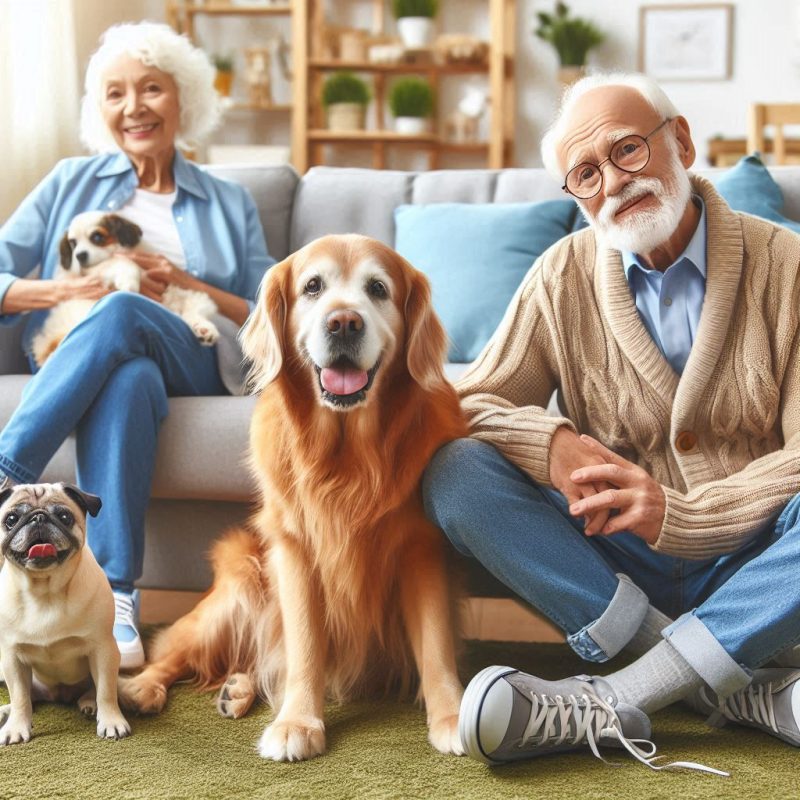10 Secrets to Ensure a Happy and Healthy Life for Your Senior Dog
As our furry friends age, it’s crucial to know how to ensure a happy and healthy life for your senior dog. Just like humans, dogs’ needs change as they enter their golden years. But don’t worry – with the right care and attention, your senior pup can continue to thrive and enjoy life to the fullest.
In this article, we’ll explore ten key secrets to keep your aging canine companion happy, healthy, and comfortable. From nutrition to exercise and mental stimulation, we’ve got you covered with practical tips and expert advice.
1. Regular, Low-Impact Exercise: Keep Moving Without Strain
Maintaining an active lifestyle is essential for senior dogs, but it’s important to adjust the intensity of their workouts. Here are some low-impact exercises perfect for older pups:
- Short, gentle walks
- Swimming (great for joint health)
- Slow-paced fetch games
- Indoor obstacle courses
Remember, the goal is to keep your senior dog moving without putting too much strain on their aging joints and muscles.
2. Tailored Nutrition: Feed for Their Needs
A balanced diet is crucial for your senior dog’s health. Look for dog food specifically formulated for older dogs, which typically includes:
- Higher fiber content for digestive health
- Lower calories to maintain a healthy weight
- Added supplements for joint and cognitive health
Always consult with your veterinarian before making significant changes to your dog’s diet.
3. Natural Pain Relief: Gentle Techniques for Comfort
As dogs age, they may experience more aches and pains. Consider these natural pain relief methods:
- Acupressure
- Gentle massage
- Warm compresses for sore joints
These techniques can help alleviate discomfort and improve your senior dog’s quality of life.
4. Topical Solutions: Soothing Relief for Localized Pain
For targeted pain relief, consider using pet-safe topical creams or gels. These can be particularly effective for:
- Arthritis pain in specific joints
- Muscle soreness
- Minor skin irritations
Always check with your vet before using any new products on your senior dog.
5. Dietary Supplements: Support Overall Health
Supplements can play a crucial role in maintaining your senior dog’s health. Some beneficial options include:
- Omega-3 fatty acids for joint health and cognitive function
- Glucosamine and chondroitin for joint support
- Probiotics for digestive health
As with any dietary changes, consult your veterinarian before starting a new supplement regimen.
6. Comfortable Sleep: Create a Cozy Haven
Quality rest is essential for senior dogs. Ensure your pup has a comfortable sleeping area by:
- Providing an orthopedic bed for joint support
- Keeping the sleeping area warm and draft-free
- Placing the bed in a quiet, low-traffic area of your home
7. Sleep Regulation: Consider Melatonin
Some senior dogs may have trouble sleeping through the night. Melatonin supplements can help regulate their sleep-wake cycle. Always consult your vet for the appropriate dosage and to ensure it’s safe for your dog.
8. Regular Vet Check-Ups: Stay on Top of Health Issues
Frequent veterinary visits are crucial for senior dogs. These check-ups can:
- Detect health issues early
- Monitor ongoing conditions
- Adjust medications or treatments as needed
Aim for at least two check-ups per year for senior dogs.
9. Mental Stimulation: Keep Their Minds Sharp
Cognitive decline is common in older dogs, but you can help keep their minds active with:
- Puzzle toys and treat-dispensing games
- New tricks or commands (yes, you can teach an old dog new tricks!)
- Sensory walks with plenty of sniffing time
10. Strong Bond: Quality Time is Key
Above all, your senior dog needs your love and attention. Strengthen your bond by:
- Spending dedicated one-on-one time together daily
- Offering plenty of gentle pets and cuddles
- Speaking to them in a soothing, loving voice
Frequently Asked Questions
How old is a senior dog?
Generally, dogs are considered seniors at around 7-10 years old, depending on their size and breed. Larger breeds tend to age faster than smaller breeds.
Can senior dogs still learn new tricks?
Absolutely! While it might take a bit more patience, senior dogs can still learn new tricks and commands. It’s a great way to keep their minds active.
How often should I exercise my senior dog?
Aim for short, gentle exercise sessions daily. The exact amount will depend on your dog’s health and energy levels. Always consult with your vet for personalized advice.
By implementing these ten secrets, you can help ensure a happy and healthy life for your senior dog. Remember, every dog is unique, so pay attention to your pup’s individual needs and always consult with your veterinarian for personalized advice. With the right care and attention, your senior dog can continue to enjoy a high quality of life in their golden years.

